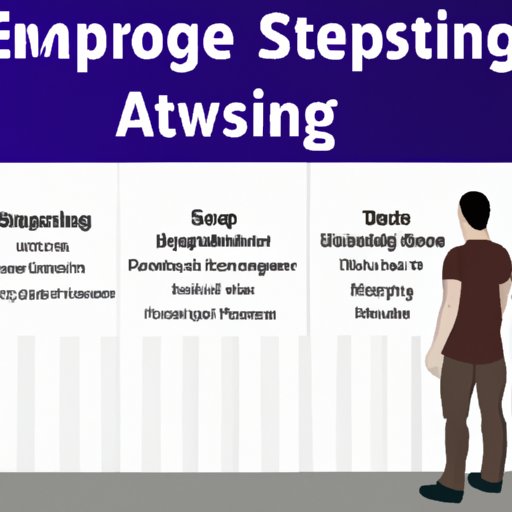Introduction
Emotional abuse is defined as any type of behavior that is intended to control, belittle, or humiliate another person. It can include verbal insults, criticisms, and put-downs, as well as physical or sexual aggression. Emotional abuse is a serious issue and can have long-term damaging effects on both the abuser and the victim. This article aims to provide an overview of emotional abuse and offer practical advice on how to stop being emotionally abusive.
Recognize Your Emotional Abuse
The first step in stopping emotional abuse is to recognize that your words and actions are hurtful and damaging to others. According to Dr. LeslieBeth Wish, a nationally recognized psychotherapist and author of “The Love Adventures of Almost Smart Cookie,” “When we act out in anger, it’s usually because we feel attacked and powerless. We respond with aggression as a way of regaining our power and control.” Taking responsibility for your actions is essential in order to make changes in your behavior.
Identify the Triggers
Once you have acknowledged your own emotional abuse, it is important to understand what situations, thoughts, or feelings cause you to become emotionally abusive. Identifying potential triggers can help you to better manage your emotions and prevent outbursts. According to Dr. Wish, “By understanding the triggers that lead to our outbursts, we can work on managing those triggers and learn new ways to cope with stress and difficult emotions.”
Develop Healthy Coping Mechanisms
Finding healthy ways to cope with stress and difficult emotions is key to preventing outbursts of emotional abuse. Examples of healthy coping mechanisms include deep breathing, mindfulness meditation, yoga, journaling, and spending time in nature. According to Dr. Wish, “It’s important to find activities that bring us joy and make us feel relaxed. It’s also important to take time for ourselves to recharge and reconnect with our own needs.”
Take Time Out
If you feel yourself getting angry or overwhelmed, it is important to step away from the situation. Find a place where you can cool off and take a few moments to collect your thoughts. Taking a break will allow you to gain perspective and approach the situation with a clear head.
Seek Professional Help
If you’re struggling to manage your emotions on your own, seek help from a mental health professional. Talking to a therapist can help you to identify the underlying causes of your emotional abuse and develop strategies to address them. There are also group therapy programs available that can provide additional support and guidance. Seeking professional help can be beneficial in helping you to build healthier relationships and reduce the risk of future outbursts of emotional abuse.
Conclusion
Emotional abuse is a serious issue that can have long-term damaging effects on both the abuser and the victim. Stopping emotional abuse requires taking responsibility for your words and actions, identifying the triggers behind your behavior, developing healthy coping mechanisms, and seeking help from a mental health professional. By following these steps, you can begin to make positive changes in your life and create healthier relationships.
(Note: Is this article not meeting your expectations? Do you have knowledge or insights to share? Unlock new opportunities and expand your reach by joining our authors team. Click Registration to join us and share your expertise with our readers.)
